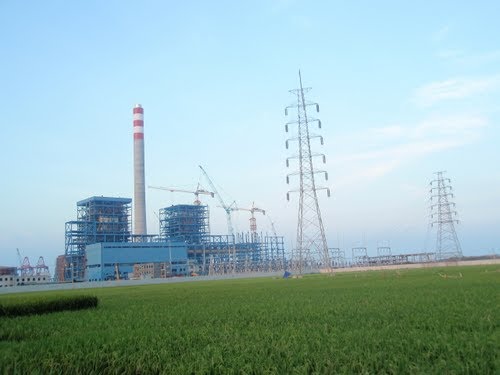Ekuatorial, Lima – Japan receives hard criticisms for including funding for coal-fueled power plant into Green Climate Fund (GCF) scheme. It had allegedly submit a proposal which include climate finance worth of one billion dollar (Rp 12 trillion) to GCF since 2009. The proposal had incorporated coal power plants projects.
Coal is considered as biggest contributor for carbon dioxide emission along with oil and gas, dubbed as dirty energy, which increase greenhouse gas emission in the atmosphere causing for climate change.
The criticism came from Executive Secretary of United Nations Framework Convention on Climate Change (UNFCCC), Christiana Figueres. “There is no more discussion, coal projects have no place in the future energy system,” said Figueres as quoted from WWF site.
Japanese government reasoned that their investments on the projects will create more clean power plants, lesser emissions compare to other technologies, so they will reduce emission from coal, compare to letting Indonesia built those projects by itself.
“The funding in GCF scheme is aiming on reducing emission not to fund projects that will increase emission though Japan claims that this power plant will be more efficient and cleaner than before,” said Brandon Wu of US’ Action Aid, on a press statement, in Lima, Peru, on Wednesday (3/12).
“Investment on coal power plant can not be called as climate funding and Japan needs to stop pretending that they are saving the planet while their action actually damaging people,” said Yuri Onodera, campaigner of Japan’s Friends of the Earth. Around 250 civil societies have delivered their protests to GCF and Japanese government.
Green Climate Fund is an official climate finance under UNFCCC which dedicated to provide funding from developed countries to developing countries in their efforts to combat climate change. Up to this date, 22 countries have committed to fund GCF which have reached to US$ 9.7 billion (Rp 1,192 billion) by October. It is still far from the target of US$ 100 billion (Rp 1,229 trillion) per year until 2020.
Japan is one of developed nations committed to fund GCF and becomes one of 24 members of its council. However, until the end of 2014, GCF has yet to set up which projects are allowed or not allowed to be funding. It is prompted Japanese government to propose fossil fuel energy projects.
Wu said there were no black list of projects made by GCF, so basically Japan did not break any rules. “It is because of what their doing that we know which [projects] are forbidden,” he said adding that he had hoped for the upcoming meeting of GCF on February will come up with exclusion list of forbidden projects for GCF.
Japan’s three projects included Cirebon 1 coal power plant with 1 x 660 Megawatt (MW) worth of US$ 825 million (Rp 10 trillion) coming from Indika Energy, Marubeni Coorporation, and Korea Midland Power Company consortium. The power plant has been operating since 2011 and received an award for green power plant in ASEAN.
The second project is Paiton coal power plant in east Java with 815 MW, funded by Japan’s Bank for International Coorperation (JBIC), worth of US$ 729 million (Rp 8 trillion). The project is an expansion from previous power plant of which half is owned by Mitsui and Tokyo Electric Power Co. The last project, Indramayu coal power plant with 1×1000 MW earned US$ 15 million (Rp 184 billion).
Ekuatorial did not manage to get confirmation from Japanese delegation at the conference as they claimed not the right person to answer. IGG Maha Adi (Lima, Peru)
